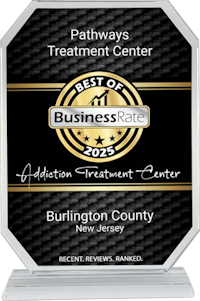Alcoholism, or alcohol use disorder, can affect individuals from various backgrounds and walks of life. This article explores the risk factors contributing to alcoholism, including early drinking habits, genetic predispositions, environmental stressors, recreational drinking behaviors, and coping strategies for mental illness. We will also highlight available treatment options and specific programs designed to aid recovery.
Signs of Alcohol Use Disorder
Recognizing the signs of alcoholism is the first step toward understanding its impact. Alcoholism manifests in various ways, and individuals may not always recognize their behaviors as problematic. Common signs include:
- Strong craving for alcohol
- Isolating from friends, or preferring the company of heavy drinkers
- Needing more alcohol to achieve the same effects (increased tolerance)
- Withdrawal symptoms when not drinking, ranging from irritability to physical shaking
- Continued use of alcohol despite adverse consequences (such as strained relationships or legal consequences)
- Neglecting responsibilities at work or home
- Consuming alcohol, even in dangerous situations
Many individuals may turn to alcohol as a way to cope with underlying mental health issues such as depression or anxiety. This can lead to a vicious cycle of addiction where the temporary relief provided by alcohol exacerbates the original issues, leading to increased consumption and deeper emotional distress. Recognizing these patterns is crucial, as it highlights the need for a dual diagnosis approach to treatment that addresses all facets of alcoholism. Understanding these signs can empower individuals to seek help before the situation escalates.
Groups at Higher Risk of Alcohol Addiction

Certain groups of people are more susceptible to alcohol abuse and addiction due to a combination of factors. Understanding these risk factors can help individuals identify if they are more likely to develop an alcohol addiction or to stop drinking before alcohol addiction develops.
Research indicates that individuals who begin drinking at a younger age are more likely to develop alcoholism later in life. The brain is still developing during younger years, making early drinkers especially vulnerable to alcohol’s effects. This can lead to lasting changes in brain function and behavior, reinforcing the cycle of substance abuse. Young people who regularly consume alcohol are also more likely to engage in other risky behaviors, compounding their likelihood of developing substance abuse.
This early exposure can stem from various reasons, including:
- Peer pressure
- Family traditions of drinking
- Prevalent misuse of alcohol by adults
- Recreational drinking behaviors
- Access to alcohol
- Early exposure to alcohol
In addition to the psychological and physiological effects of early alcohol consumption, a person’s upbringing can be fundamental in shaping drinking habits. For instance, in cultures where drinking is integrated into social gatherings and celebrations, young people may feel an implicit expectation to partake. This cultural normalization can create an environment where alcohol consumption is not only accepted but encouraged. Alcohol addiction may be underplayed or treated as not a real concern.
Families that model responsible drinking behaviors and maintain open dialogues about the risks associated with alcohol can significantly influence their children’s choices. Conversely, households where alcohol misuse is prevalent may inadvertently teach children that drinking is a coping mechanism for stress or emotional challenges.
Genetic factors play a significant role in an individual’s likelihood of becoming an alcoholic. Research shows that families with a history of alcoholism increase the chances that their descendants will also experience similar issues with alcohol. Certain genetic variations can affect how alcohol is metabolized in the body and the psychological response to drinking.
Beyond alcohol-relevant genes, inherited traits such as impulsivity or a higher sensitivity to stress can influence drinking behaviors. People who carry these genetic markers may be more inclined to seek out alcohol as a form of coping or recreation, setting the stage for potential alcoholism.
Living in a high-stress environment can significantly increase the risk of developing alcoholism. Financial difficulties, relationship problems, or PTSD from traumatic experiences may drive individuals to seek relief in alcohol consumption. In such environments, alcohol may be viewed as an escape or coping mechanism. Chronically high stress levels can lead to a reliance on alcohol, as individuals may start drinking more frequently to manage their emotions. While alcohol may temporarily numb stress, it ultimately can exacerbate anxiety and other mental health issues, contributing to a vicious cycle of increased consumption and amplified stressors.
The social environment in which a person finds themselves can play a crucial role that affects other people around them. If friends normalize drinking as a response to stress, it can further entrench these unhealthy coping strategies. Families may experience tension as one member’s drinking escalates, leading to conflicts and misunderstandings.
Children in such households may suffer from emotional neglect or develop their own coping mechanisms, perpetuating the cycle of stress and alcohol use in future generations. Workplaces characterized by high demands and low support can create a culture where employees turn to alcohol as a means of unwinding after a long day, further embedding drinking into the fabric of their daily lives.
Many people associate social gatherings and celebrations with alcohol consumption, and may view drinking as an inherently fun activity. This social context can significantly contribute to a casual approach to alcohol that may escalate into problematic drinking. When enjoyment and alcohol become inseparable in social settings, it increases the likelihood of developing unhealthy drinking habits.
Individuals with alcohol addiction may underestimate the impact of their drinking habits, believing that they can control their intake. The enjoyment associated with drinking can sometimes mask the development of a dependency. As social drinking becomes more frequent and excessive, distinguishing between responsible drinking and alcoholism can become increasingly challenging.
In many cultures, drinking is woven into the fabric of social interactions, serving as a lubricant for conversation and a means to bond with others. From toasting at weddings to clinking glasses during holiday celebrations, drinking often symbolizes camaraderie and shared joy. This cultural acceptance can create a sense of obligation to partake, leading individuals to drink even when they might prefer not to. Peer pressure can play a significant role, especially among young adults who may downplay their preferences to fit in with other young adults.
The marketing of alcoholic beverages often glamorizes drinking, portraying it as a key component of a good time in a social setting. Advertisements frequently depict vibrant parties, laughter, and carefree moments, reinforcing that alcohol is essential for enjoyment. This portrayal can lead to a skewed perception of what constitutes a fun experience, pushing individuals to equate happiness with drinking. It may lead to an individuals reasoning themselves out of any suspicion that they’re developing an alcohol addiction. This makes it crucial for individuals to reflect on their motivations for drinking and the potential consequences of their choices.
Individuals suffering from mental health issues, such as anxiety or depression, often turn to alcohol use as a means of self-medication. The temporary relief provided by alcohol can make it an appealing option for those looking to cope with their symptoms. Unfortunately, this reliance can lead to addiction, as the individual may start using alcohol not just to alleviate symptoms but as a primary method of managing everyday life.
Those who self-medicate often do not recognize the long-term consequences of using alcohol to cope with mental health challenges. Instead of seeking mental health treatment, whether through individual therapy or medication, individuals may find themselves caught in a cycle of addiction. This interplay between mental health and alcoholism underscores the need for integrated treatment strategies that address both issues simultaneously.
It’s also worth noting that the stigma surrounding mental health and addiction can prevent individuals from seeking the help they need. Many people living in stressful environments may feel ashamed of their struggles. Support systems can be instrumental in helping individuals navigate their challenges and find healthier coping mechanisms. But people are imperfect, and therapy services from mental health professionals can help to teach coping skills that friends or family may not be able to teach from their own experience.
Heal From Alcoholism at Pathways Treatment Center

Pathways Treatment Center offers an integrative approach to healing alcohol addiction and alcoholism, recognizing the multifaceted nature of addiction. Our programs cater to individuals from diverse backgrounds, focusing on personalized treatment plans that encompass medical, psychological, and emotional support.
If you or a loved one is struggling with alcoholism, contact us today. Utilizing evidence-based practices and a supportive community can significantly improve the chances of successful recovery and a healthier future.



